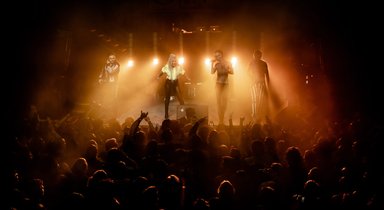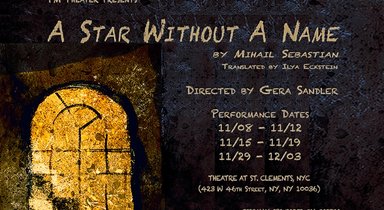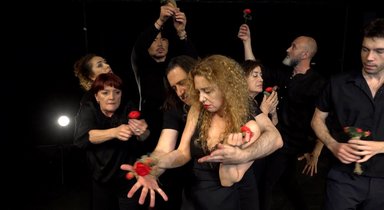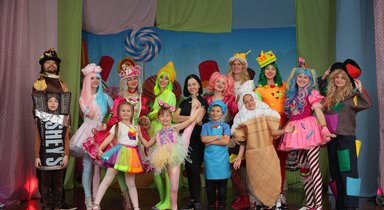Culture
Concert Subscriptions, Care Packages & More: How Promoters Adapting to Crisis
By Stephan Cartello • Apr 30, 2020

In the midst of the coronavirus pandemic, billboard reports that independent music promoters have had to find creative ways to remain afloat financially until live events can proceed. While fans were immediately eager to support their favorite musicians or local venues, promoters have had to make their case for why they are also essential to the live music ecosystem and develop new strategies for enticing continued support from fans.
"Some people might not know what a promoter is or not know how to support a promoter, where they understand a venue that they go to or a band they go to see," Graham Williams, owner of Texas promoter Margin Walker, says. "It is a little bit of an uphill battle, but if you are a promoter, in theory, you have reach and you know how to market and get info in front of people’s eyes. That’s what you do for a living every day."
Promoters across the country began seeking financial assistance in mid-March through GoFundMe campaigns, concert gift cards, custom T-shirts and merchandise, and various livestreams. For instance, New York based promoter PopGun Presents recreated its Brooklyn venue Elsewhere in video game Minecraft for a virtual concert. On April 11, the virtual festival called Nether Meant raised more than $8,000 for coronavirus relief fund Good360 through donations, merch for Minecraft avatars, and digital VIP areas and meet and greets with the artists.
Some promoters who operate venues have taken advantage of regulations allowing continued food and alcohol sales to generate revenue while their rooms are shuttered. San Francisco's DNA Lounge is continuing to run its pizza restaurant during the shutdown and is now offering pre-made cocktails along with expanded pizza delivery through GrubHub,PostMates and other services. Heard Presents, which runs Empire Control Room and The Parish in Austin, created $10 care packages available for pickup, including a six-pack of beer, a bag of chips, a sticker supporting the local culture district, a beer koozie and a mock ticket for shows that don't exist.
"We had a bunch of beer inventory that we couldn’t sell back and if it sits there it is just going to go bad. They passed this emergency ordinance to let people do curbside pickup and we are kind of hacking the system a little bit,"
says Heard Presents managing partner Steve Sternschein, who adds that all proceeds are going to keeping his staff fed and employed.
Sternschein admits that these new efforts, which also include merch and content ideas, would have never been worth his time if the venue was up and running. But he's inspired by the outpouring of local support.
"I thought nobody was going to buy our care packages. I thought, no one is driving to Empire for a six-pack of beer,” Sternschien says. "The reality is, nobody drove to Empire for a six-pack of beer. They drove there because they care about what we are doing and wanted to support us. I was blown away."
Longtime Bay Area promoter Noise Pop has a running GoFundMe campaign to support its staff, launched gift cards for upcoming shows and has tapped into its 30-year history to supplement efforts.
"We’ve got merchandise and show posters that have been sitting around in archives for decades. We have worked with an incredible set of visual artists over the years from Shepard Fairey to Thomas Campbell to Lil Tuffy and many many others,” says Noise Pop Industries founder Kevin Arnold. “We are looking at organizing that and releasing that to the world and revamping our merchandise, The Noise Pop Shop."
Similar to gift cards being offered by Noise Pop, PopGun Presents and more, Margin Walker is currently offering non-expiring "show bonds" for fans who continue to have disposable income and want to show their support during the crisis.
"We had the idea of war bonds like in World War II, where you buy these bonds and it is a good investment for the future and you help out. Our show bonds are basically, you can buy a certain amount and it is good for tickets for future shows with 20% off," says Williams.
He explains that the bonds are selling well, but their more subtle purpose is to incentivize people to return to shows once doors reopen.
"It doesn’t generate a ton of profit or anything it’s just a way to commit people to coming to see music down the road and beef up sales for shows," Williams says. "They aren’t committing to anything other than going at some point. I think most people will use it when they feel comfortable and we are past the worst of it.”
Independent promoters have also turned to launching various subscription services. Noise Pop launched a tiered subscription through Patreon called Culture Club. Monthly membership fees range from $7 for exclusive digital content including exclusive 'At-Home' sessions from artists and episodes of the Noise Pop Podcast up to $449 for unlimited access to all Noise Pop shows throughout the year, passes to the next Noise Pop Festival with VIP upgrades for all Noise Pop events and more.
"It is, of course, odd that we are launching a live music subscription service when there is no live music," Arnold says. He explains that the Patreon idea has been on the back burner for a while and that the government mandated shutdown gave Noise Pop the opportunity to pursue service. "It is moving from a donation to having a valid offering and a business model. It is a way for fans to show support in a consistent and ongoing way."
According to Noise Pop and Margin Walker live events have been slowly headed in the direction of subscriptions for years similar to the recorded side of the business. Margin Walker, for example, has had a subscription fan club on sale for two years in a row that provides two-for-one ticket options for monthly shows. Williams says it is a great way to get people out to shows and venues at least once a month.
But because the cost of putting on each individual live show varies greatly for most promoters with different artist guarantees and ticket prices, these subscription models look more like ones offered at movie chains like AMC or Alamo Draft House rather than Spotify or Netflix. Unlike movie or music streamers, subscriptions for movie theaters have limits on the amount of films you can attend per month and are only a portion of the business model. Fans who are not members of the movie theater services can still attend, but at a higher price and without select discounts throughout the movie going experience including reduced rates on food and beverage.
"I don’t think [subscriptions] are something you’re going to be able to base a business on entirely, but it is a nice piece of the overall puzzle and we have to be diversifying and thinking about this. It can’t just be ticket sales," Arnold says.
Williams agrees:
"We stream more movies via Netflix than we pay to rent, buy or go to see movies any more," he says. "But those are things you can all watch at the same time over and over again. And they get licensed all at once, where the live music scene is built so differently. It would take a major shift to do it across the board, but I do think there's interest there and there are conversations being had."
Save
Share
Comment


